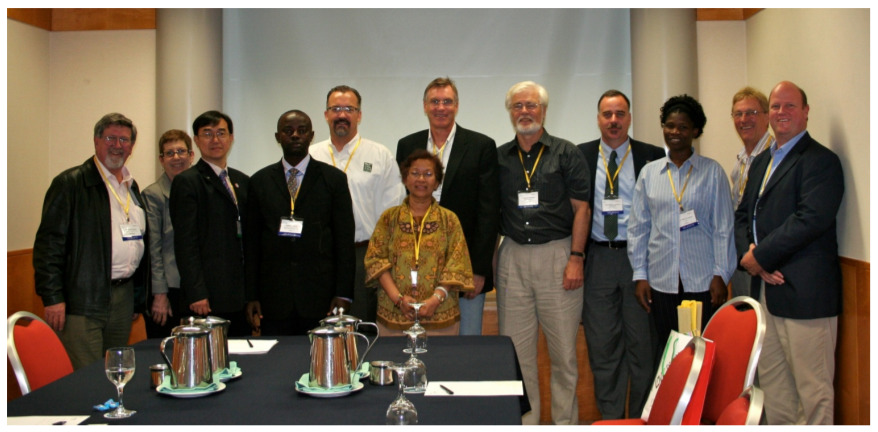
Code Council, Global Organizations Advance Toilet Design Guidelines
![]() For the past two years, the International Code Council (ICC) and the World Toilet Organization (WTO) have been working with committee members representing sanitationrelated organizations around the globe to develop “Global Guidelines for Practical Toilet Design.” This document will standardize the design and installation of public toilets for virtually any country to easily adopt and follow.
For the past two years, the International Code Council (ICC) and the World Toilet Organization (WTO) have been working with committee members representing sanitationrelated organizations around the globe to develop “Global Guidelines for Practical Toilet Design.” This document will standardize the design and installation of public toilets for virtually any country to easily adopt and follow.
Although public restrooms exist throughout much of the world, standardized design would be much more cost effective to install and maintain than having literally thousands of variations on a relatively basic design. This improved efficiency, not only reduces costs, but may enable installations in areas where previously they might have been unaffordable.
This guideline will facilitate clean, convenient, hygienic and safe public toilet facilities of appropriate design and quality. It also will offer guidance on basic care and maintenance of these facilities. Specific provisions developed to date apply to the practical design, location, erection, installation, alteration, repairs, replacement, use and maintenance of public toilets.
“This is a relatively straightforward and practical concept,” said Jay Peters, Executive Director with the Code Council’s Plumbing, Mechanical and Fuel Gas Group. “But it has not been undertaken before and will result in dramatically increased access to public sanitation in many nations around the world. We are so proud to be playing such an integral role in the development of these guidelines.”
Founding members of this committee and other professionals who contributed substantially to the initial draft of the Guidelines include: Kathryn Anthony, University of Illinois; Bill Chapman and Scott Chapman, Australian Toilet Organization; Dr. Steve Cummings, Standards Australia; Jan-Olof Drangert, Linkopings University; Peter Gorges, Exeloo; Clara Greed, University of the West of England, Bristol; Carol McCreary, PHLUSH; Trevor Mulaudzi, The Clean Shop; John-Henry Nicholas, Institute of Plumbing South Africa; Charles Owusu, Best Fund; Jay Peters and Sylvana Ricciarini, International Code Council; Jack Sim, World Toilet Organization; and Frank Wu, Wu & Associates Architects and Engineers.
With alarming statistical facts such as 2.6 billion people do not have access to proper sanitation, and that a child dies of a waterborne illness every 15 seconds, it is no wonder that these members are so committed to solving this crisis. In fact, eight of the committee members are speaking on various topics related to global sanitation during the first ever U.S. World Toilet Summit in Philadelphia.
Presented by the International Code Council and hosted by the American Society of Plumbing Engineers during their biennial conference, the Summit will be held October 31-November 3. The theme of the conference is “2.6 Billion Sanitation Business Opportunities” since altruism alone cannot solve this massive problem. Commerce is essential to respond to this crisis based on the sheer numbers of people it affects. Mind-boggling profits can be realized from this huge market, and it is corporate investment that will make huge strides needed to truly evidence change.
The World Toilet Summit features an impressive lineup of speakers from around the world, who will share their expertise and insights regarding innovative toilet design, bottom of the pyramid marketing and micro financing, advocacy and potty parity, as well as the importance of education related to hygiene.
“Sanitation education is key to the global sanitation crisis,” added Jack Sim, founder of the World Toilet Organization. “When people understand the importance of using toilets and proper hygiene, it makes such a huge difference in the health of their family and their communities. These guidelines will help save countless lives.”
A session during the Code Council technical track on Tuesday, November 2 will feature a panel discussion about the Global Guidelines. Panelists Jack Sim with WTO will be joined by Lee Clifton, Jay Peters and Sylvana Ricciarini with the Code Council who will present various aspects of the Guidelines.
The Summit also will include an International Breakfast during which Guidelines committee members Peters and Sim will speak about sanitation issues, as will Therese Dooley, UNICEF’s senior advisor for hygiene and sanitation. These presentations will be followed by a discussion about the Global Guidelines. Since these Guidelines will continually evolve, expand and otherwise change as additional provisions are added, countries provide specific input and feedback, and new technologies are developed, attendees will be invited to sign up to join the committee to dramatically expand the level of expertise and related input to further enhance the provisions put forth in the guidelines.
For more information about the Global Guidelines, including learning how you can join the committee to assist in the efforts to save countless lives through improved sanitation conditions, contact the PMG Resource Center at 1-888-ICC-SAFE, x 4PMG or PMGresourcecenter@iccsafe.org. If you are interested in learning more about the World Toilet Summit, visit www.iccsafe.org/iccwts.

The International Code Council, a membership association dedicated to building safety, fire prevention and energy efficiency, develops the codes used to construct residential and commercial buildings, including homes and schools. Most U.S. cities, counties and states choose the International Codes, building safety codes developed by the International Code Council. The ICC’s Plumbing, Mechanical and Fuel Gas (PMG) Group is devoted exclusively to providing PMG products and support to jurisdictions and construction industry professionals across the country and around the globe, with one or more PMG codes adopted in 49 states. The more than 200 superior products and related services were developed specifically by and for plumbing and mechanical professionals. Contact the PMG Group for additional information at 1-888-ICC-SAFE, x4PMG, PMGResourceCenter@iccsafe.org, or visit www.iccsafe.org.








